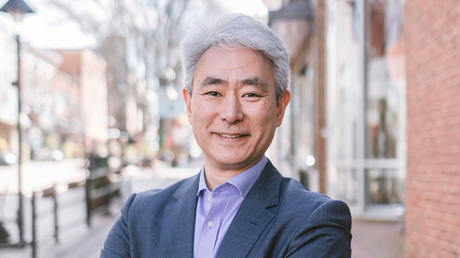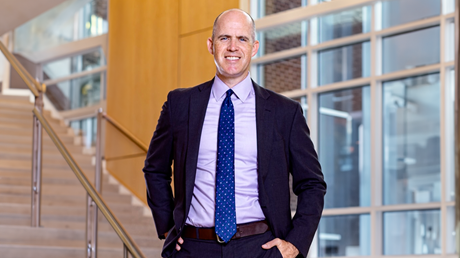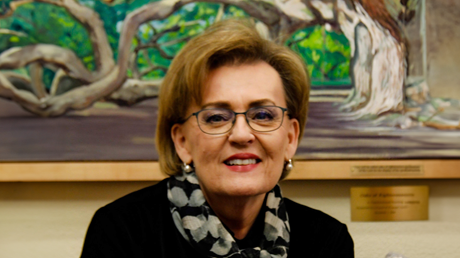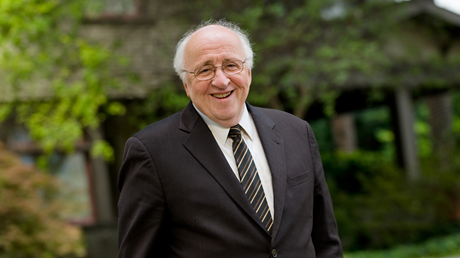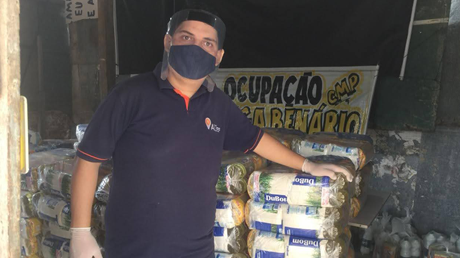Will you help encourage and connect the church?
Give NowWill you help encourage and connect the church?
Give NowChristianity Today's global reporting is already gaining attention both in and outside the faith community, as seen in Senior News Editor Jeremy Weber's "Incredible Indian Christianity: A Special Report on the World's Most Vibrant Christward Movement," an article based off his time in India that won first place at the Evangelical Press Association and then contributed to his first-place award for Excellence in Magazine News Religion Reporting with the Religion News Association.
CT's team of global reporters also includes Kate Shellnutt, whose most recent reporting trip to Cambodia was made possible by generous financial partners. For two weeks, Shellnutt traveled to three major cities and villages. The end result was three articles: Two addressing the Christian involvement in the fight against trafficking and a third that addressed the growth of the church in Cambodia. Kate answers a few questions on the importance and future of global reporting for Christianity Today.
How do you believe CT's global reporting contributes to the church?
Christianity Today's international reporting helps us appreciate the scope and breadth of God's work in the world. Plenty of our readers pray for God's Word to spread to the ends of the earth, and through our coverage, we're able to show the ways the church is an active, growing, positive force in faraway places. I believe the Body of Christ also benefits from hearing directly from Christians in other contexts. Their words and experiences can introduce us to new dimensions of understanding the gospel.
Why did you decide to write three pieces, instead of just one, from your time in Cambodia?
The short answer for this setup is that through being there in person, I gathered so much information about Christianity in Cambodia that it made sense to dedicate space and attention to some distinct trends that emerged. In many ways, it felt like too much to summarize in one big story since the narratives are so complicated. I left the country feeling both hopeful but heartbroken, and I hope that sense comes across in the package. A lot of progress has been made both in terms of reducing child sex trafficking and in growing the church—but it's hard to fully celebrate either marker when the country started from such a tragic place and still has so long to go.
What was a memorable experience you had while reporting in Cambodia?
I was in Phnom Penh, the capital city, I was invited to go on a brothel raid. They planned the raid just hours before, so there would have been no way for me to schedule to observe such an event. The photographer and I were right there as police, Christian investigators, and Christian social workers rescued six underage girls from a brothel in a notorious housing project. It was an invaluable experience that demonstrated and encapsulated everything I'd been reporting on: the community buy-in to report more trafficking crimes, the initiative of the police, the involvement of the Christian partners, and the improved treatment of the victims. Seeing it all play out, with real criminals and real victims, shaped how I conceived of the whole sex trafficking story. My anecdote from being there appears in the lead article.
What advantage did you have being on the ground as opposed to simply researching the area and scheduling interviews?
Being in Cambodia allowed me to meet and interview young victims of sex trafficking—something that would have been impossible if I weren't there in person alongside their therapists and translators. Though my story focuses on the structural and legal reform taking place in Cambodia, I knew it was important to feature the voices of the girls who had suffered through it themselves. At multiple shelters, because they trusted CT and our Christian mission, I was given special permission to talk to these girls and invite them to share their stories with me. They ranged in age from 12 to 19.
I spent nearly a whole day at a shelter playing schoolyard games, eating lunch, observing classes, and studying the Bible with them just to build the level of comfort and familiarity necessary for this kind of conversation. When we first sat down to talk, I'd always ask them a low-stress question, like their favorite subject in school or what they watch on TV (turns out Cambodian Idol is a big hit among this age group). Initially, it was so hard to imagine these girls going through the terrors that got them to a shelter, but as I'd ask more about their homes and their family lives, the hints of brokenness and pain would come up. Many girls, like the one quoted in the sex trafficking story, admitted that they felt so comfortable about the shelter that they worried about carrying their faith and optimism to their villages if they ever returned.
There was one victim who went into detail about her experience, start to finish, and she serves as the lede anecdote in the online-only labor trafficking piece. She was sold as a child bride to China, where she was abused and impregnated by the man who married her. She was rescued once her friends notified a Christian trafficking hotline. Her story remains the single most haunting thing from my whole trip.
My other special interview subjects were two members of the Cambodian government who, despite their own Buddhist faith and the government's preferential treatment for Buddhists, spoke very highly of Christian involvement in sex trafficking.
How was your trip personally significant?
I treasured getting to meet these fellow believers and hear their stories. The editor's note in the issue recounts that many of my sources coincidentally came from the same denomination as my church now, the Christian and Missionary Alliance. Even one of the translators I worked with, Raksmey, recounted to me how he learned English through a Cambodian megachurch and turned his skill into a company geared at Christian clientele, Kairos Translation Services. Raksmey translated my articles into Khmer so that his church, New Life Fellowship, as well as the many other sources I visited with in Cambodia, can read CT in their native tongue.
What is your hope for the future of CT's global reporting?
Going forward, I hope that CT is able to continue to develop connections with evangelical leaders and organizations outside the US. These sources help us bring more nuance and timeliness to our global coverage.
Like this particular international reporting trip and the corresponding articles, the financial gifts of our readers make it possible for CT to continue—and, prayerfully, expand—this kind of unique, on-the-ground global reporting.
Joy Beth Smith is a managing editor at Christianity Today.





